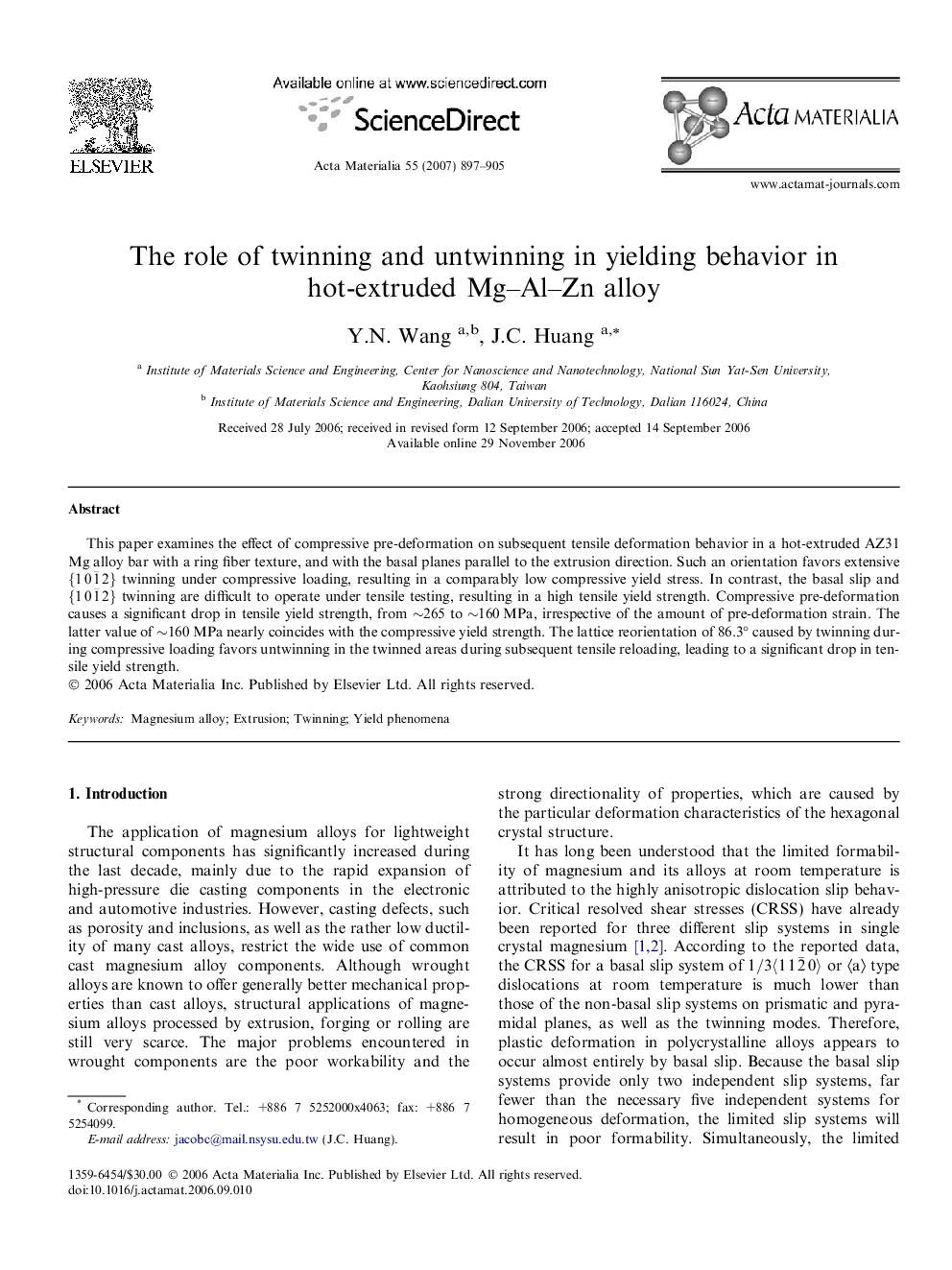| Article ID | Journal | Published Year | Pages | File Type |
|---|---|---|---|---|
| 10620875 | Acta Materialia | 2007 | 9 Pages |
Abstract
This paper examines the effect of compressive pre-deformation on subsequent tensile deformation behavior in a hot-extruded AZ31 Mg alloy bar with a ring fiber texture, and with the basal planes parallel to the extrusion direction. Such an orientation favors extensive {101¯2} twinning under compressive loading, resulting in a comparably low compressive yield stress. In contrast, the basal slip and {101¯2} twinning are difficult to operate under tensile testing, resulting in a high tensile yield strength. Compressive pre-deformation causes a significant drop in tensile yield strength, from â¼265 to â¼160 MPa, irrespective of the amount of pre-deformation strain. The latter value of â¼160 MPa nearly coincides with the compressive yield strength. The lattice reorientation of 86.3° caused by twinning during compressive loading favors untwinning in the twinned areas during subsequent tensile reloading, leading to a significant drop in tensile yield strength.
Related Topics
Physical Sciences and Engineering
Materials Science
Ceramics and Composites
Authors
Y.N. Wang, J.C. Huang,
